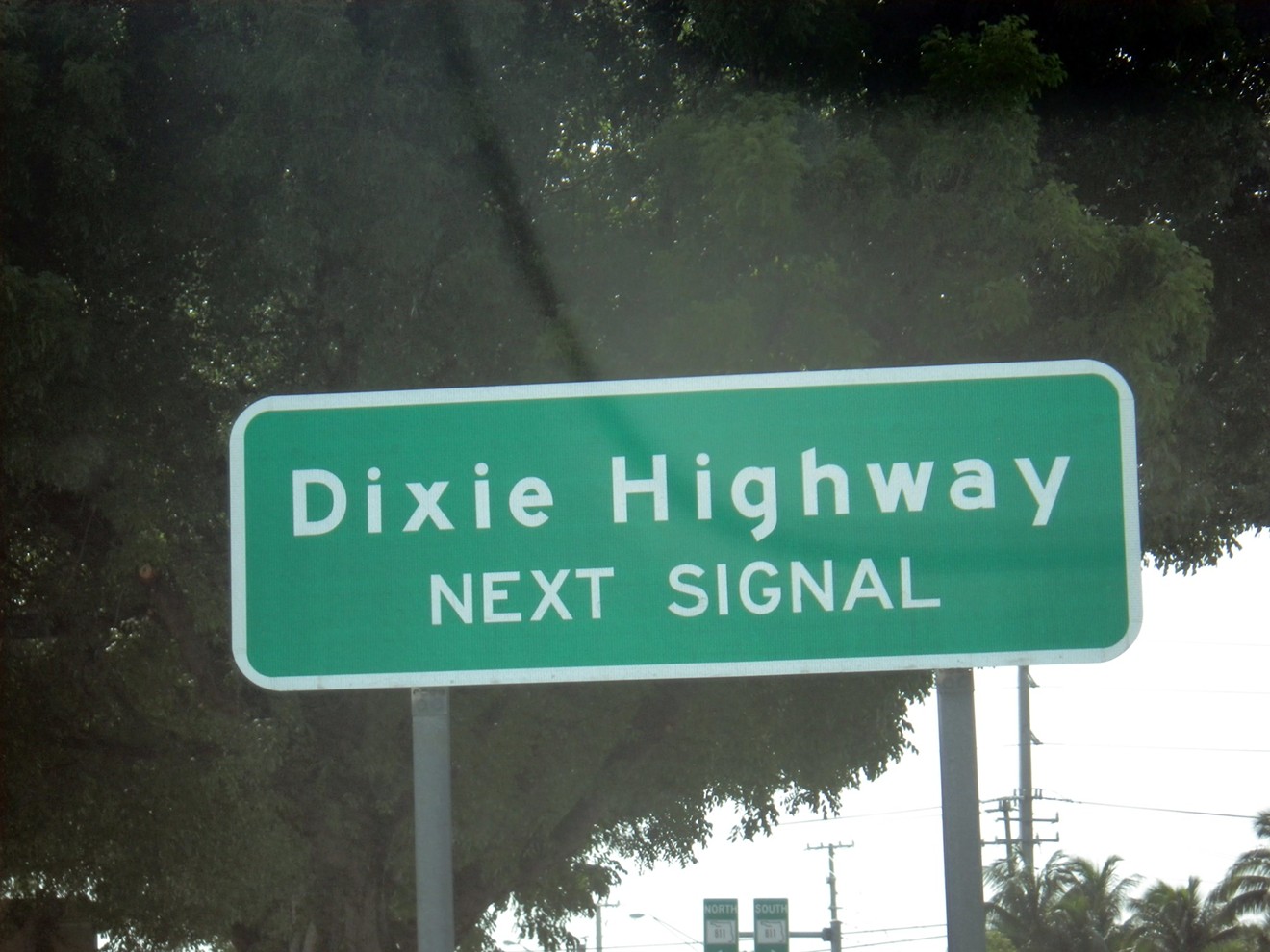The topic came up during a commission meeting discussion about renaming a portion of West Dixie Highway in North Miami Beach as "Ben Laurenzo Way" in honor of the founder of Laurenzo's Italian Market. Moss said he supported the resolution, which ultimately passed unanimously, but added he was "in the process of bringing forth some legislation to address the issue of those roadways that we have in Miami-Dade County that include the word 'Dixie,' which has a very derogatory meaning as it relates to African-Americans in this community."
Moss said the word "is associated with the Confederacy, slavery, KKK, and those kinds of negative movements that have been a part of our past."
Commissioner Barbara Jordan agreed and requested a meeting with Moss to bring forth the legislation together. Commissioners Daniella Levine Cava and Rebeca Sosa also expressed support for the pending legislation. Sosa called it an "education" because she was unfamiliar with the racist history of the word "Dixie."Will Dixie Highway be retired? Miami-Dade Commissioner Dennis Moss said he's preparing to push for renaming the state-owned stretch of U.S.1 that uses a nickname tied to the Confederacy. Moss said name evokes the KKK, slavery and other elements of racism.
— Doug Hanks (@doug_hanks) November 19, 2019
Most historians believe the word "Dixie" originates from the Mason-Dixon Line, which marks part of the boundaries between Pennsylvania in the North and Virginia, West Virginia, and Maryland in the South. During the Missouri Compromise of 1820, the Mason-Dixon Line was established as the boundary between slave states and free states. "Dixie" and "Dixieland" became nicknames for the slaveholding states south of the Mason-Dixon Line.
The song "Dixie" (also known as "Dixie's Land" and "I Wish I Was in the Land of Dixie") helped establish the word as a term of endearment for the antebellum South just before the beginning of the Civil War. Daniel Decatur Emmet, a white man who is credited with writing the first version of the song in the 1850s, had founded the first troupe of blackface minstrels a decade earlier. He would perform "Dixie" in blackface, a racist caricature for which he'd paint his face and hands black and impersonate an African-American. His performances were billed as a "plantation song and dance."
After the outbreak of the Civil War, the song "Dixie" became the de facto anthem of the Confederacy. It was incredibly popular among Confederate soldiers, who would sing the lyrics "I wish I was in the land of cotton/Old times there are not forgotten," and, "Then I wish I was in Dixie, hooray! hooray!/In Dixieland I'll take my stand to live and die in Dixie."
The song was such an obvious representation of the Confederacy that Union soldiers created their own parody:
Away down South in the land of traitors,The University of Miami marching band has been banned from playing "Dixie" since 1968. During that decade, as civil rights activists sang "We Shall Overcome," anti-black counterprotesters would sing "Dixie" in response. Carol Moseley Braun, the first black woman in the U.S. Senate, said Sen. Jesse Helms whistled "Dixie" while in an elevator with her and her son after a Senate vote on insignia in the Confederate flag. Helms — a virulently homophobic racist — opposed the Civil Rights Act, Voting Rights Act, and bussing, and he tried to stop the Senate from designating Martin Luther King Jr. Day as a federal holiday via a 16-day filibuster.
Rattlesnakes and alligators,
Right away, come away, right away, come away.
Where cotton's king and men are chattels,
Union boys will win the battles...
Each Dixie boy must understand
That he must mind his Uncle Sam.
So Miami-Dade Commissioner Moss said the time has come to rename Dixie Highway.
"We change what we can and advocate what we can't," he said.












